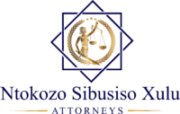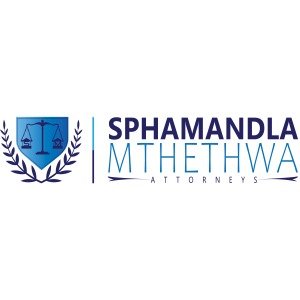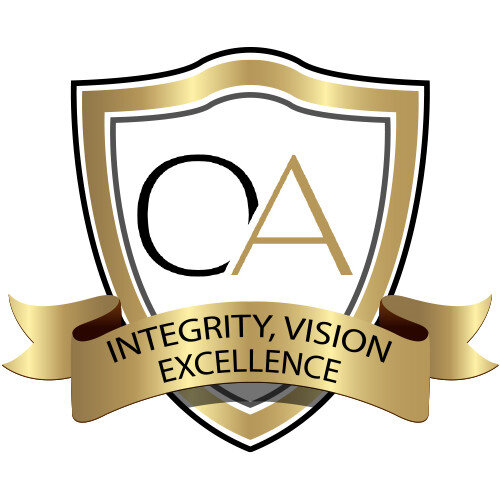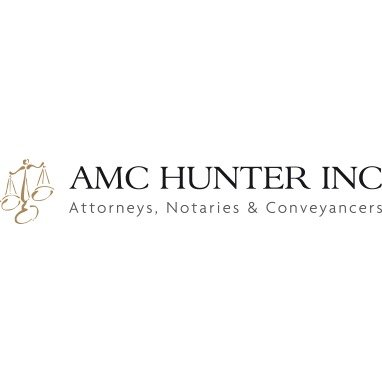Best Antitrust Litigation Lawyers in Durban
Share your needs with us, get contacted by law firms.
Free. Takes 2 min.
List of the best lawyers in Durban, South Africa
About Antitrust Litigation Law in Durban, South Africa
Antitrust litigation, also known as competition law litigation, deals with disputes arising from anti-competitive conduct in the marketplace. In Durban, South Africa, these legal matters are guided by national legislation and focus on protecting fair competition, preventing monopolies, and addressing unfair business practices. Antitrust litigation commonly involves individuals or businesses that believe they have been harmed by practices such as price fixing, market allocation, bid rigging, or abuse of dominant market power. The goal is to maintain a level playing field in the South African economy, ensuring that consumers and honest businesses are not disadvantaged by unlawful conduct.
Why You May Need a Lawyer
Antitrust litigation can be complex and often involves significant financial stakes and technical evidence. You may need a lawyer if you:
- Suspect that your business has been victimized by price fixing, collusion, or unfair competition by competitors.
- Are under investigation by the Competition Commission for anti-competitive practices.
- Need to understand your rights and obligations under South African competition law.
- Wish to pursue damages for losses suffered due to anti-competitive behavior.
- Have received subpoenas, notices, or summonses from competition authorities.
- Require legal representation in hearings before the Competition Tribunal or courts.
- Want to ensure your business practices and contracts comply with antitrust laws.
- Are involved in a merger or acquisition that may have competition concerns.
Lawyers experienced in antitrust litigation can help you understand the law, gather evidence, defend your interests, and navigate the complex procedures associated with these cases.
Local Laws Overview
In Durban, as part of South Africa, antitrust issues are governed primarily by the Competition Act 89 of 1998, as amended. The Act prohibits agreements or practices that prevent, restrict, or distort competition. Key aspects include:
- Prohibited Practices: Includes price fixing, market division, collusive tendering (bid rigging), and other restrictive horizontal or vertical agreements.
- Abuse of Dominance: Large firms abusing their dominant position to exclude or disadvantage competitors are prohibited from engaging in practices such as predatory pricing, refusal to supply, or exclusionary acts.
- Mergers and Acquisitions: Certain transactions must be notified to, and approved by, the Competition Commission to prevent undue market concentration.
- Enforcement and Remedies: The Competition Commission investigates, the Competition Tribunal adjudicates, and the Competition Appeal Court hears appeals. Civil damages are possible for affected parties.
- Penalties: Breaches can result in administrative penalties, fines, and invalidation of offending contracts.
Provincial and municipal authorities in Durban must also adhere to national competition standards, ensuring fair local economic practices.
Frequently Asked Questions
What is antitrust litigation?
Antitrust litigation is the process of resolving legal disputes over anti-competitive conduct, such as cartels, abuse of market dominance, price fixing, or unfair exclusion of competitors from the market.
Which authority investigates antitrust violations in Durban?
The national Competition Commission is responsible for investigating potential violations throughout South Africa, including Durban. Matters may also be brought before the Competition Tribunal and Appeal Court.
What are common examples of anti-competitive conduct?
Examples include collusion between competitors, bid rigging, dividing up markets or customers, price fixing, and abusing a dominant market position to stifle competition.
Can I claim damages if my business suffered because of anti-competitive behavior?
Yes, if your business has suffered financial loss due to another's anti-competitive actions, you may be able to claim civil damages in addition to any regulatory penalties imposed.
Does antitrust law only apply to large companies?
No, the law applies to businesses of all sizes. Small and medium businesses can also be both perpetrators and victims of anti-competitive behavior.
What penalties exist for breaking antitrust laws in South Africa?
Penalties can include substantial administrative fines, invalidation of agreements, and liability for damages. In severe cases, responsible individuals may face additional sanctions.
How can I find out if my company is compliant with competition laws?
Consult with a lawyer specializing in competition law to review your business practices, contracts, and strategies. Regular compliance checks are recommended.
Will my case be handled in Durban or elsewhere?
Initial investigations often occur locally, but formal hearings and litigation are usually handled by national bodies such as the Competition Tribunal, with sessions sometimes held in different locations.
Do I need a lawyer to represent me before the Competition Commission or Tribunal?
While you can represent yourself, legal representation is strongly advised due to the complexity of the law and procedures involved in antitrust matters.
How long does an antitrust case usually take in South Africa?
Timelines vary depending on the complexity of the case. Investigations can take several months to years, and subsequent legal proceedings can be lengthy, especially if appeals are involved.
Additional Resources
Individuals and businesses in Durban can obtain further information or guidance from the following resources and institutions:
- Competition Commission of South Africa: Provides information on investigation procedures, recent cases, and compliance guides.
- Competition Tribunal of South Africa: Handles adjudication of major antitrust cases and makes decisions on penalties and remedies.
- Department of Trade, Industry and Competition: Offers regulatory guidance on national competition policy and merger notification requirements.
- South African Institute of Chartered Accountants and law societies: Can refer you to qualified professionals specializing in competition law.
- Legal Aid South Africa: For individuals who may qualify for assistance in cases with public interest components.
Next Steps
If you believe you have an antitrust issue in Durban, or you wish to ensure your business complies with competition law, consider the following steps:
- Document any suspected anti-competitive conduct and gather supporting evidence such as emails, contracts, or correspondence.
- Seek a consultation with a qualified lawyer who specializes in competition law and antitrust litigation.
- Contact the Competition Commission if you suspect market-wide anti-competitive practices.
- Ensure ongoing compliance by implementing internal policies and regular competition law training for your employees.
- Monitor updates to the law, as regulations and enforcement priorities may change over time.
Early legal advice can be crucial in complex antitrust situations, whether defending against accusations, challenging harmful conduct, or maintaining compliant business operations. Taking proactive steps will help safeguard your rights and interests under South African competition law.
Lawzana helps you find the best lawyers and law firms in Durban through a curated and pre-screened list of qualified legal professionals. Our platform offers rankings and detailed profiles of attorneys and law firms, allowing you to compare based on practice areas, including Antitrust Litigation, experience, and client feedback.
Each profile includes a description of the firm's areas of practice, client reviews, team members and partners, year of establishment, spoken languages, office locations, contact information, social media presence, and any published articles or resources. Most firms on our platform speak English and are experienced in both local and international legal matters.
Get a quote from top-rated law firms in Durban, South Africa — quickly, securely, and without unnecessary hassle.
Disclaimer:
The information provided on this page is for general informational purposes only and does not constitute legal advice. While we strive to ensure the accuracy and relevance of the content, legal information may change over time, and interpretations of the law can vary. You should always consult with a qualified legal professional for advice specific to your situation.
We disclaim all liability for actions taken or not taken based on the content of this page. If you believe any information is incorrect or outdated, please contact us, and we will review and update it where appropriate.

















